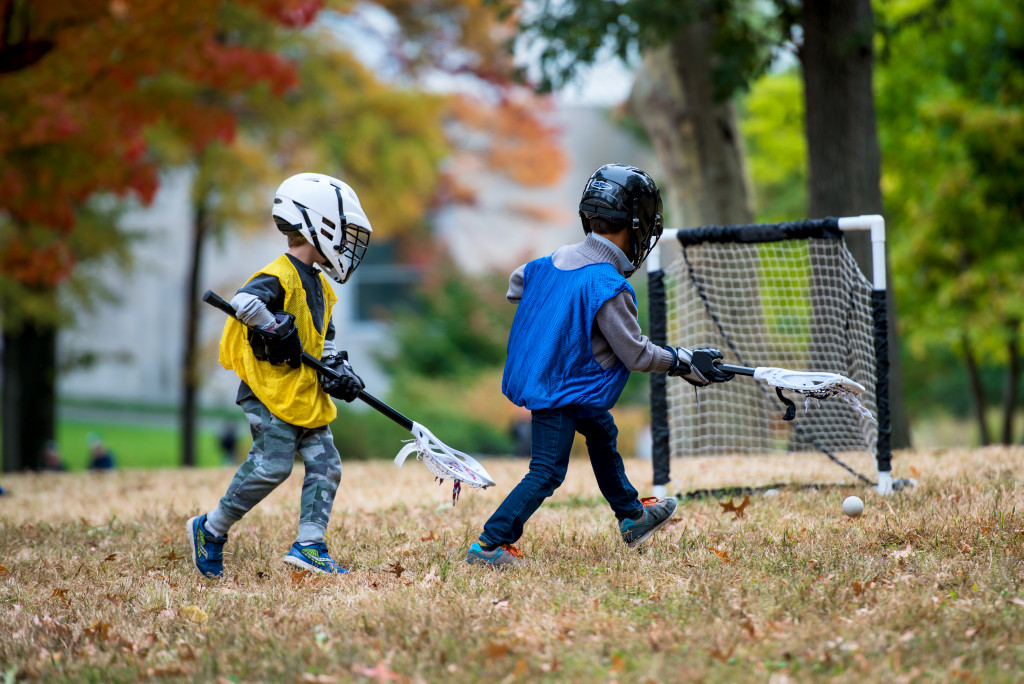- Promoting health in children involves balanced nutrition, hydration, and reduced sugar intake.
- Engagement in varied activities, exploring new ones, and ample exploration time are beneficial.
- Immediate treatment of health issues and protection against outdoor diseases are essential.
- Implementing regular breaks, setting reasonable goals, and celebrating achievements foster a healthy lifestyle.
- Support rather than pressure is essential for higher self-esteem and a healthier lifestyle.
As a parent, you want your children to grow healthy and strong. But with so many distractions, it can be hard to keep them active and engaged, especially in the age of video games and smartphones. That’s why summer camps and outdoor activities are great opportunities for children to get away from screens and into nature.
With some planning and effort, you can ensure your child stays healthy and active during these experiences. This blog post will review some strategies for keeping your children healthy and active while they enjoy the great outdoors.

Start with Nutrition
One of the most important aspects of keeping your child healthy is ensuring they eat a healthy diet. Encourage whole foods, such as fruits, vegetables, and lean protein. If your child is at a summer camp, you must ensure their meals are healthy and balanced.
Reduce Sugary Food
If you’re sending your child with snacks, try to avoid pre-packaged, sugary foods. Instead, opt for fresh fruit, nuts, or whole-grain crackers. And make sure your child is staying hydrated throughout the day.
The Importance of Hydration
Hydration is an essential part of nutrition that cannot be overlooked, particularly when children are involved in physical activities. Water helps regulate body temperature, removes waste, and fuels physical performance. Encourage your child to drink water frequently, even if they don’t feel thirsty.
Mix-Up Their Activities
Keeping kids engaged and stimulated is key to preventing boredom and staying active. Many camps offer a variety of outdoor activities, from hiking and swimming to crafts and team sports.
New Activities
Encourage your child to try new activities and explore different camp areas. You can also suggest other outdoor activities for them at home, such as family hikes, bike rides, or picnics.
Time to Explore
Ensure you give your child plenty of time to explore and participate in activities that interest them. Not only will this help to keep your children engaged, but it can also help develop essential skills such as problem-solving, teamwork, and communication.
Treat Health Issues Immediately
No matter how careful you are, your child may still become ill or injured while away from home. That’s why informing the camp staff about health concerns and providing appropriate medication if needed is crucial. Additionally, ensure they have access to a first aid kit in an emergency.
Diseases from Outdoor Activities
It’s also important to be aware of the potential health risks associated with outdoor activities. Make sure your child is protected against diseases such as Lyme disease and West Nile virus by using insect repellent and avoiding high-risk areas like wooded or marshy locations. If the child contracts Lyme disease, you should consider letting them go through reliable hyperthermia treatment for Lyme disease. The treatment can help alleviate Lyme disease symptoms and reduce the risk of recurrence.
West Nile Virus is a potentially serious illness primarily transmitted to humans through the bite of an infected mosquito. It’s imperative to keep your children protected, especially outdoors. Simple, preventative measures such as wearing long-sleeved shirts and pants or using a mosquito repellent with DEET can help reduce the risk.
Build-In Breaks
While keeping children active is essential, they also need to rest and recharge. Allow your child some downtime throughout the day to relax and recharge, whether reading a book, doing a puzzle, or taking a nap. This can help prevent injuries and keep them focused and energized when they return to their activities.
Regular Breaks
Encouraging your child to take regular breaks during outdoor activities is also important. This could mean taking a break every 30 minutes to stretch, drink water, and have a snack. Regular breaks can allow the body to recover and prevent overexertion or fatigue.

Set Reasonable Goals
Finally, set reasonable goals for your child and celebrate their accomplishments. Maybe your child wants to swim across the lake or hike to a nearby mountain. Help them set a reasonable timeline and break down the task into smaller steps. When they reach their goal, celebrate their accomplishment and encourage them to keep reaching for higher goals.
It’s essential to be supportive and encouraging rather than putting pressure on children. This will help them feel more confident about pursuing their goals, leading to higher self-esteem and a healthier lifestyle.
Keeping your children healthy and active in the great outdoors requires some planning and effort. But the benefits are numerous: better physical and mental health, increased social skills, and a greater appreciation for nature. Following the tips enumerated in the article can help your child have a fun and healthy summer experience.